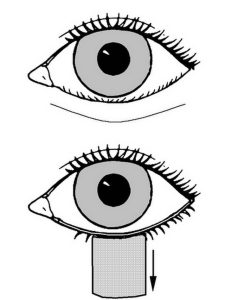When COVID was just settling down, towards the end of its first year, I attended one of those wonderful new virtual conventions that have since lightened the lives of many of us. It was in Dublin and it was terrific. This was one of the conferences that helped turn isolation around. Trinity College in Dublin ran it, and it was amazing, even though I was part of it from a very long way away.
One paper in particular set me to thinking. It was about the furniture in Star Trek. Thanks to Trinity HistoryCon the paper is online, so I’ll give you a link to it: https://www.youtube.com/watch?v=Vf4IaYb_srM&list=PLObDqlLOVXYpRKL-eYDwBi53FkTNMeFqJ&index=6 In fact, here is a link to the whole programme: https://duhistorycon.wordpress.com/
I don’t want to discuss the furniture in Star Trek today specifically: the paper, after all, does this so well. I want to think about why furniture doesn’t fit so many of us and what this says about writers of the “isn’t the future amazing” type of science fiction that doesn’t allow for significantly different sizes of human beings. When we see the long line of chambers made to preserve space travellers in stasis, we expect to see them stacked as regularly as coffins, regardless of the size of the occupant. If all the chambers are two metres long, what happens to the person who is 12 cm longer? What happens to the hookups in the chamber to someone who is dwarfed by the inner tube? What happens with someone whose girth (like mine) may well cause lack of space on either side? When the chambers are mass-produced, it makes great sense that they look mass produced, but when they are supposed to be expensive, designed for the needs of the individual, it makes no sense at all.
This applies to our everyday life. I was chatting with some British friends over the weekend and we compared our experience with furniture. I have short legs and very few chairs are made that allow me to put my feet on the ground. This is not good for a number of reasons. Try sitting for five long days in a chair just a few centimetres too high and “not good” will explain itself. My friends in that particular group are all very tall, and they face the opposite problem. If they were to use my kitchen, they would have to sit down to use the benches, and if I were to use theirs, I’d need a stool to stand on.
This is all very unexceptional. Our different sizes and the way that most furniture is made for a ‘typical’ or ‘average’ person whose measurements have almost nothing in common with mine mean that this topic appears quite often when I chat with tall friends or friends who are closer to my height, to friends who have wide hips or very narrow ones. Modern design allows for some differences in some cases, but we have to look fir furniture and test it if we are not ourselves of standard design.
In dystopian futures or catastrophic ones no-one is expected to be comfortable. Standard design works just fine in these stories. In the science fiction where the technology is amazingly advanced, especially when depicted on television or film, it’s curious that most furniture is designed pretty much the way standard furniture is now. It’s those cryogenic chambers again. Not everyone will fit, and the actor has to adjust. More than this, in those odd occasions where the furniture fits the actual body or the furniture adapts to meet the body’s needs, the camera often fusses over it, to demonstrate how exceptional this is. Comfort is not a thing some of us can ever take for granted, even in the most extraordinary future.
When, on Star Trek, when Michael Burnham and her shipmates travel to the distant future, furniture was shown to be malleable and changeable and adaptable. While this is demonstrated in the early episodes, the effects of that level of comfort are not explored. The idea that human beings do not have to adapt to something designed for a different body shape is difficult even in a show that conceptualises that furniture as almost infinitely adaptable.
I’ll be watching out for furniture of all kinds for the next few years. I want to know which writers and designers see the human body and its needs, and which simply see a set on which action is to tak e place. If you’re interested in seeing what I see, let me know and I’ll write about it here.

 I’m weirdly fascinated by medical neep. This goes back, probably, to having my tonsils out when I was 5 (I was so excited that I fought off the pre-op sedative, to the point where they had to take me down to surgery and pipe ether into me, because I wanted to see everything that was happening). I discovered medical non-fiction–the terrific “Annals of Medicine” series by New Yorker essayist
I’m weirdly fascinated by medical neep. This goes back, probably, to having my tonsils out when I was 5 (I was so excited that I fought off the pre-op sedative, to the point where they had to take me down to surgery and pipe ether into me, because I wanted to see everything that was happening). I discovered medical non-fiction–the terrific “Annals of Medicine” series by New Yorker essayist